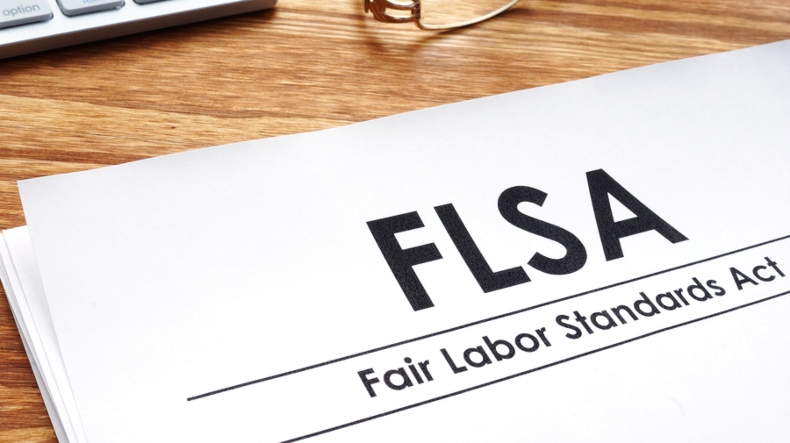Now that we are little more than a month into the new year, employers are settling into new state and federal regulations relating to hiring, firing, and all things payroll. That makes this the perfect time to remind them and their payroll providers of the requirements set forth by the Fair Labor Standards Act (FLSA) of 2009. This federal legislation applies to nearly every employer in the United States.
The FLSA was enacted more than seven years ago to ensure that workers were treated fairly by their employers where wages, overtime, and full disclosure are concerned. It has been largely successful in its intended goals. Having said that, employers can get careless if they don’t make a concerted effort to stay abreast of the FLSA.
According to BenefitMall, a nationwide online payroll and benefits administration company, the top four things employers need to remember about the FLSA are as follows:
1. There Is a Federal Minimum Wage
The FLSA established a federal minimum wage of $7.25 per hour. That minimum wage went into effect in July 2009. Employers with hourly workers are required to pay at least that amount to all qualifying employees. However, employers must also pay attention to state minimum-wage requirements.
In any case in which employees are subject to both federal and state minimum-wage requirements, they are entitled to receive the higher of the two wages. In addition, there are some states with minimum-wage laws that offer additional protections to workers. Employers are obligated to abide by those protections.
It is ultimately the employer’s responsibility to make sure minimum-wage laws are being followed, even if a third-party payroll service provider is used for payroll processing. A reputable payroll provider should be fully aware of federal and state laws.
2. Overtime Pay Is Mandatory
The FLSA established mandatory overtime pay for all nonexempt employees. As you know, former President Barack Obama used an executive order to extend eligibility for overtime pay in 2016. Federal law stipulates that covered nonexempt employees receive overtime pay for all hours worked in excess of 40 per week at a rate of at least one-and-a-half times their normal pay.
3. Hours Worked Must Be Tracked
Employers are required to keep track of all hours worked by covered nonexempt employees. It is important that both employers and their contracted payroll services understand how the government defines working hours. For example, any hours workers are on call are considered working hours if those workers are required to stay on company premises.
4. Record Keeping and Full Disclosure Are Mandatory
Lastly, the FLSA mandates all employers keep accurate records of employee work hours and pay. Payroll service providers such as BenefitMall already do that as a matter of course; the small business handling payroll in-house may not. In addition to accurate records, employers are also required to display an official FLSA poster in a conspicuous place on their premises for the benefit of employees. This poster outlines the rights of employees under the FLSA.
In summary, the FLSA was enacted in 2009 to protect workers. It is federal legislation that does put extra burdens on employers to make sure things are done a certain way. None of these additional burdens is voluntary. Employers should understand that failure to comply with the FLSA, whether directly or through their dealings with a third-party payroll service provider, carry substantial penalties.
Business owners and managers unfamiliar with the FLSA should make a point of educating themselves right away. Payroll service providers like BenefitMall can provide some guidance, as can the U.S. Department of Labor.





